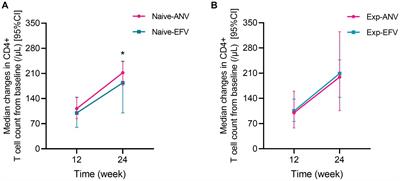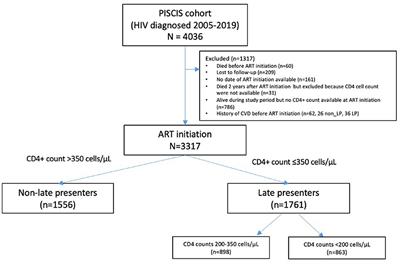EDITORIAL
Published on 03 Apr 2024
Editorial: New frontiers in HIV antiretroviral treatment: from the management of metabolic complications and chronic inflammation to new long-acting regimens
doi 10.3389/fmed.2024.1402565
- 573 views
3,171
Total downloads
14k
Total views and downloads
EDITORIAL
Published on 03 Apr 2024
ORIGINAL RESEARCH
Published on 08 Jan 2024

ORIGINAL RESEARCH
Published on 21 Jun 2023

ORIGINAL RESEARCH
Published on 09 May 2023

SYSTEMATIC REVIEW
Published on 07 Jul 2021

